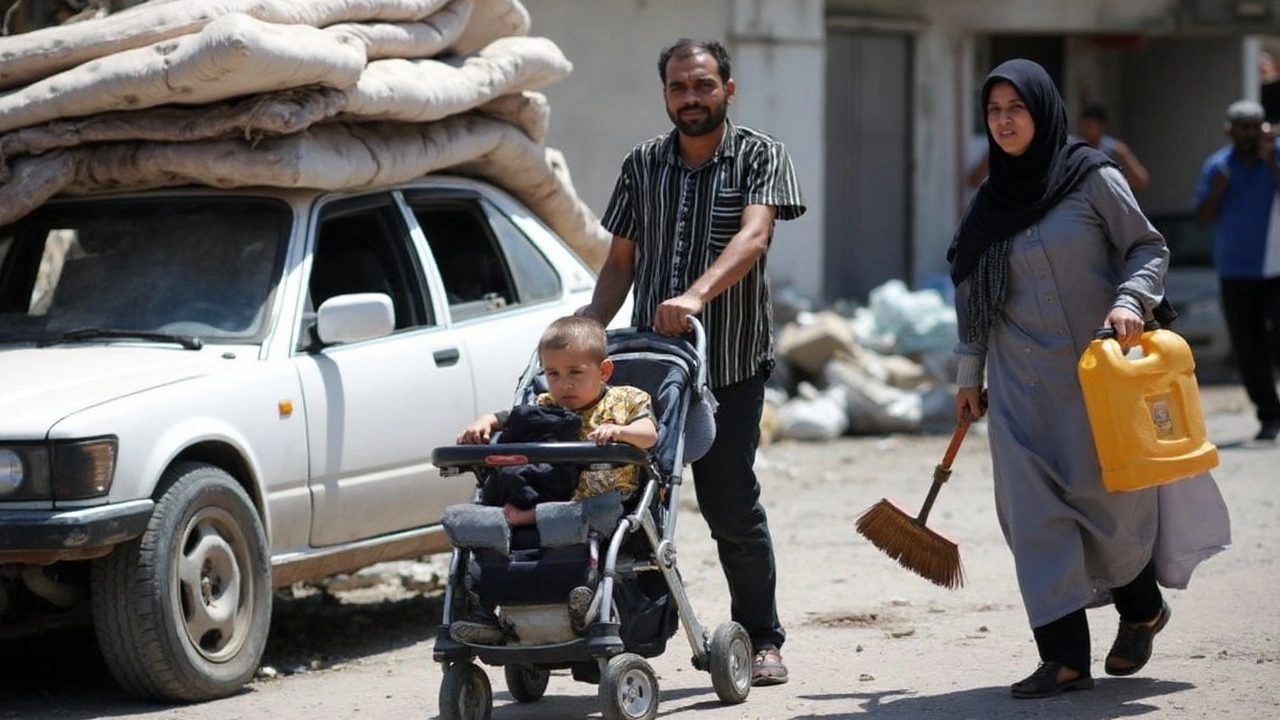Israel Aid Restrictions – Quick Facts and What They Mean
If you’ve been scrolling the news, you’ve probably seen headlines about aid limits on Israel. It can feel confusing, but the basics are simple. Governments, especially the UK, have put rules on the flow of money and supplies to make sure they’re used for civilian help, not for anything that fuels conflict.
These restrictions usually cover three things: who can receive the aid, what kind of goods are allowed, and how the funds are tracked. For example, the UK stopped funding projects that could boost military capabilities and now focuses on medical kits, food, and clean water. The idea is to keep the help strictly humanitarian.
Why the Rules Were Added
When the Gaza conflict escalated, there were reports that some aid was ending up in the wrong hands. That’s why policymakers pressed for tighter controls. They want to avoid accusations that tax‑payer money is being used to support any side of the fighting. By tightening the rules, they hope to protect civilians and keep the aid process transparent.
Another driver is public pressure. Lots of people called for accountability after hearing about aid trucks being diverted. So the new rules try to answer that demand for oversight. It’s not just a political move – it’s about making sure the help reaches the people who need it most.
How the Restrictions Work on the Ground
Organizations that receive government funding must now submit detailed plans showing exactly where the supplies will go. They also need to set up monitoring systems that can prove the items aren’t being repurposed. In practice, this means more paperwork, but it also gives donors confidence.
One example is the ban on certain construction materials that could be used to reinforce tunnels. Instead, charities are encouraged to send tents, portable toilets, and temporary shelters. Those items are easier to track and harder to misuse.
Overall, the process adds a layer of bureaucracy, but many NGOs say it’s worth it for the added credibility. If you’re donating, look for charities that openly share their compliance reports – that’s a good sign they’re following the restrictions.
Staying updated is easy. Follow official UK government releases, check reputable news sites, and subscribe to newsletters from major humanitarian groups. Most of them note any changes in the aid rules within their weekly updates.
So, what should you do with this info? If you’re planning to donate, pick organizations that have clear policies on Israel aid restrictions. If you’re just curious, keep an eye on how the rules evolve – they can shift quickly based on the situation on the ground.
Bottom line: the restrictions aim to keep aid safe, transparent, and focused on civilians. They add some paperwork, but they also protect the integrity of the help you’re supporting. Stay informed, choose reputable charities, and you’ll be part of a system that really makes a difference.

Gaza famine confirmed in Gaza City as UN calls it a failure of humanity
A UN-backed analysis has confirmed famine in Gaza City for the first time, putting the area at IPC Phase 5— the most severe level. Over half a million people face starvation, with conditions projected to spread to Deir al-Balah and Khan Younis by late September. The UN chief called it a man-made disaster. Israel rejects the findings, as aid groups warn deaths will climb without an immediate surge in access.